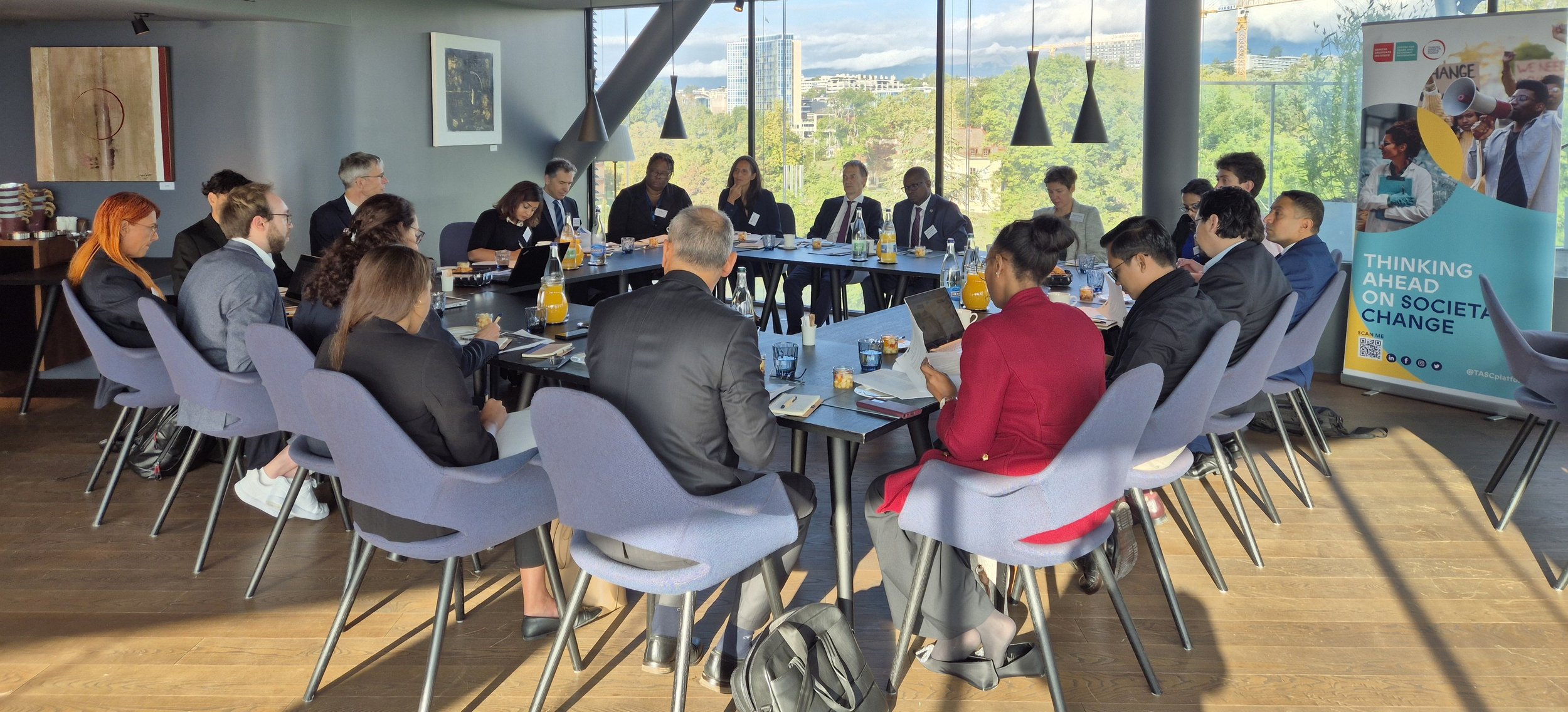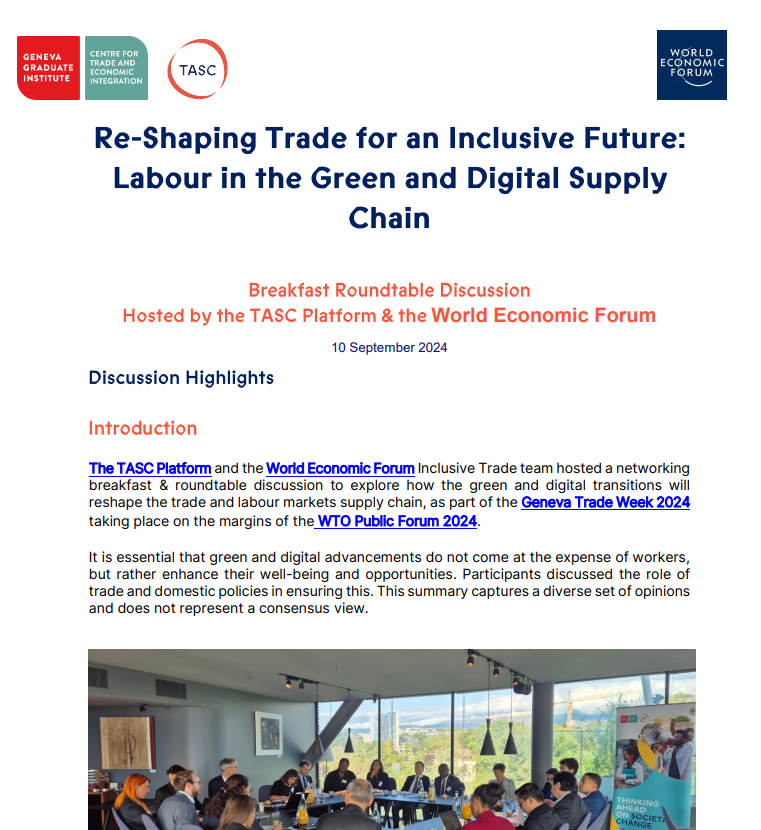Reshaping Trade for an Inclusive Future: Labour in Green & Digital Supply Chains
As part of Geneva Trade Week 2024, taking place on the margins of the WTO Public Forum 2024 hosted under the theme of “Globalization: Better Trade for a Better World”, the TASC Platform, in partnership with the World Economic Forum’s Inclusive Trade team, hosted a dynamic breakfast roundtable on “Re-Shaping Trade for an Inclusive Future: Labour in the Green and Digital Supply Chain.”
Interview of Soledad Leal Campos, Policy Lead, International Trade and Investment, World Economic Forum
This networking breakfast discussion brought together policymakers, industry leaders, and labor experts for an in-depth conversation on how green and digital transitions will reshape global labor markets and supply chains, and the crucial need to center workers' rights in these shifts.
Participants exchanged views on the intersection of trade and labor, reflecting on actionable strategies to protect workers during rapid technological advancements and environmental shifts. The discussion featured a deep dive into Kenya and Indonesia, with representatives from both countries providing expert feedback. Kenya’s digital transformation, hailed as the Silicon Savannah, is projected to employ a large share of the workforce by 2050, while concerns were raised about wage disparities, gig workers’ protections, and digital literacy. In Indonesia’s critical minerals sector, discussions centered on worker safety, environmental risks, and the balance between job creation and quality jobs. European legislation on labor standards in the green and digital transition was also thoroughly reviewed and discussed during the breakfast, particularly its role in promoting fair labor practices through trade agreements.
Looking ahead, the project now moves into its next phase of in-country research, focused on the newly emergent Trade and Labour Nexus in the context of just green and digital transitions, in both Indonesia and Kenya. Whilst hosting workshops in both countries, the next phase of the project will further strengthen insights into aligning trade and labor policies to support inclusive and resilient labor outcomes, continuing to emphasize the Trade and Labour Nexus as a key framework for policy action.
As the project aims to feed country-level learnings into multilateral, regional and bilateral processes in coordination with international organizations and civil society, stay tuned on our platforms to receive our final paper. In the meantime, you can read a summary of the networking breakfast discussion below and enjoy further resources on the Trade & Labour Programme.





